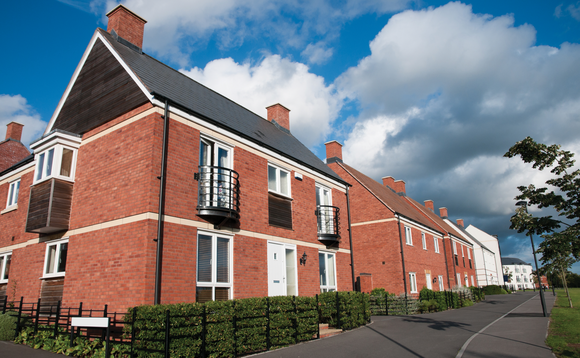In partnership with Packaged Living, the asset management branch of Aviva aims to provide an affordable solution to housing demand in the UK
Leading insurance company Aviva has unveiled plans to support the deveopment of a new portfolio of build-to-rent green family homes, in a bid to both meet demand for affordable housing in the UK and support efforts to slash emissions from the built environment.
Aviva yesterday announced a new partnership between its global asset management business Aviva Investors and Packaged Living, a Build to Rent developer, which will see the insurance giant acquire and forward fund single-family rental homes directly from housebuilders.
The partners are targeting an initial portfolio of £200m, with an allocation of up to 1,000 homes. Over the coming months, the partners expect to invest a further £500m into the project.
Packaged Living, which is already developing 4,000 properties for rent across the UK, will be responsible for acquisitions, delivery, and management of the portfolio.
The acquired properties will be designed in line with Aviva's ambitions to achieve net zero emissions across its £50bn real assets platform. As such, the homes will include electric vehicle charging stations, heat pumps, and electric instead of gas-powered energy solutions. The partners are also considering targeting an official energy efficiency rating of A for all the new homes, ahead of anticipated changes to regulation.
"The UK has long had a mismatch between demand for homes and the volume supplied to the market, particularly for family housing," said George Fraser-Harding, fund manager at Aviva Investors. "More than a third of all homes are now occupied by renters and we see a huge opportunity to positively change that market. Our partnership with Packaged Living will focus on provision of homes where the need is greatest, whilst also delivering properties that are fit for the future, combining quality finishes with high energy efficiency, low carbon solutions and lower costs for families living in them. We also expect it to provide our clients' portfolios with high-quality assets that have strong social and sustainability credentials."
His comments were echoed by Jonathon Ivory, managing director of Packaged Living, who said: "Single Family Rental ("SFR") is the next chapter in the evolution of the BtR story, and we are excited to be responsible for proving the concept, this time with our new partners at Aviva Investors. SFR enjoys the same compelling risk adjusted income returns as multifamily housing ("MFH") but benefits from more efficient operating expenses, resulting from longer leases / lower churn, less common area maintenance and the absence of expensive amenity spaces. With lower running costs, rents can be more affordable and thus landlords are able to capture a larger share of the local market."








